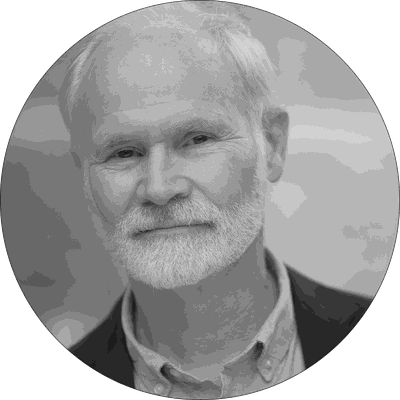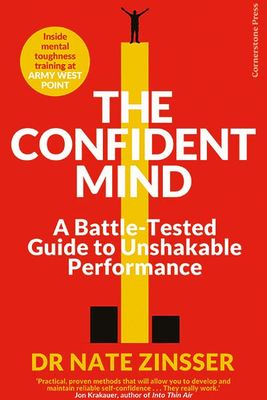
How To Be More Confident

Confidence is a sense of certainty that you have the ability to do something. That something could be tying your shoelaces or driving a car. Both of these things can be quite complicated actions, but your confidence in your ability allows you to execute them more or less unconsciously. As you do these things, there’s not a whole lot of analytical, self-reflective thought going on – in fact, we do them better when we’re not consciously thinking so much about them. The same applies to many things in life: when a great footballer steps onto a pitch, or a surgeon enters an operating room, they perform well because they have that same unconscious confidence in their competence.
I realised the power of confidence early on. I was at a school which was renowned for its powerhouse football programme. We had a legendary coach who helped everyone buy into this belief – including our opponents all over New Jersey – and it was a self-fulfilling prophecy. We thought we were good and we kept winning. But as soon as the football season was over and we switched to basketball, these same athletes who had been so good on the soccer pitch stopped believing in themselves and what they were doing. We had no reputation or self-belief as a basketball school and our results were so-so. That was a formative experience that launched me into a career in psychology – I realised attitude had a hell of a lot to do with outcomes.
Historically we have underestimated the power of mental intangibles like confidence. It’s easier to be fascinated with things that are more observable and measurable. That’s why, in sports, we’ve put a lot more effort into athletic advancements, training methodologies, equipment, nutrition and hydration than we have into mental training over the last few decades. But if you look at an outstanding team like the New Zealand All Blacks, they put a big emphasis on intangibles – like culture and mindset – and they have dominated their sport over a long period of time.
Anyone can acquire confidence. Not many people are born with confidence in everything they do – and even if they are, that confidence rarely lasts a lifetime. I’ve worked with remarkably gifted athletes who were turning into nervous little pussy cats whenever they played a recreational round of golf. Luckily, we can all learn to be more confident.
The New York Giants once asked me to help them. Their quarterback was Eli Manning, a no. 1 draft pick who wasn’t quite living up to the overwhelming hype that surrounded him. We worked on removing some mental habits around worrying, doubting and second-guessing that we all have. By removing them, you can reach that unconscious level of execution I spoke about. Eli went on to win a couple of Super Bowls and reach the very top of his game.
We are socialised to emphasise our shortcomings and discount our successes. To be confident you need to overcome this negativity bias and do the opposite. Have you ever heard somebody say it’s the memory of a crushing disappointment that motivates them to work harder at achieving their goals? That memory might give them a surge of anger that focuses them for a while, but that’s not something you can sustain over the course of, say, a career or even a season in professional sport. You’re going to run out of energy.
Confident people are much better at recalling their best moments. They use the memories of those moments to talk to themselves in the present in a much more optimistic way. So they are their own best friend – but they are also a helpful and honest critic of themselves. Rather than being consumed by crushing failures, they are able to reflect on things that have gone wrong and work out what they need to work on.
There’s no Merlin, Gandalf or Mr Miyagi to make all our troubles disappear with one meaningful conversation. There’s a misconception that once you have confidence, you’ll have it forever. In reality, turning your mind around is an ongoing process. You have to build confidence and protect it against that negativity bias.
Reflection is essential to building confidence. But it’s not a habit many people have – unless I tell them to! Start by taking a pen and paper, and looking back on your day. Where did you put in the effort today? Perhaps there was somewhere you put in the effort when you could have stepped back? The next step is to think about what you succeeded at, and then you can look at what you think you are making wider progress with at the moment? What are you getting better at? Eventually you can cultivate this habit so that you are reflecting event by event, hour by hour, creating constructive memories to take with you (and not necessarily still needing the pen and paper).
Confidence is a bit of a self-fulfilling prophecy. Another useful practice is simply to write affirmations down in the present tense – these could be desired outcomes or constructive beliefs. Scribbling down ‘I am a world-class athlete’ three times a day is a wonderful way of convincing yourself that that’s exactly what you are.
A little sphincter-puckering nervousness is a good thing. Sweaty palms, a cotton mouth, a feeling in the pit of your stomach – people often misinterpret these things as signs they are not qualified or ready to do something. They are really just signs your body is entering a heightened physiological state that is designed to help you perform well. Your sympathetic nervous system is accelerating, the 100m nerve cells in your stomach are buzzing a little more brightly, your adrenal glands are pumping a performance-enhancing chemical into your bloodstream and that’s going to speed your heart rate and excite your muscles. A lot of my work is about showing people how this nervous system works and what it really does for human performance.
False confidence is rarer than many people think. Confidence only works against you when it prevents you from diligently doing what you need to do to develop yourself. From all of the many, many people I’ve spoken to and worked with, only very few were lying to themselves about how prepared and able they were. I’d say probably 85% of them were lying to themselves about how they were unprepared or unable to do something. That’s because we spend our childhood being told we’ve got to work hard to achieve or be good at anything, which is a great approach for those developmental years, but not so good as you get older, when it can lead to over-analysis, harsh self-criticism and other ineffective mental habits.
You want to be more confident in your professional life? Confidence is like a mental bank account – it’s the running total of your thoughts and memories. Write down the top ten most fulfilling moments of your career so far – and take them to the bank. That’s your starting point. Now you’ve got to work on your reflections and your affirmation statements. You’re already constantly telling yourself stories about yourself anyway. Why not make them positive ones?
The Confident Mind: A Battle-Tested Guide to Unshakable Performance by Nate Zinsser is published by Cornerstone Press on 27th January. Pre-order it here.
All products on this page have been selected by our editorial team, however we may make commission on some products.
DISCLAIMER: We endeavour to always credit the correct original source of every image we use. If you think a credit may be incorrect, please contact us at [email protected].
